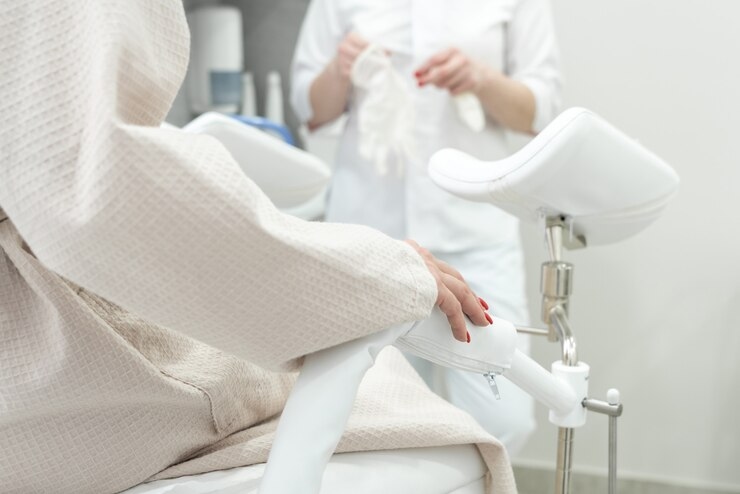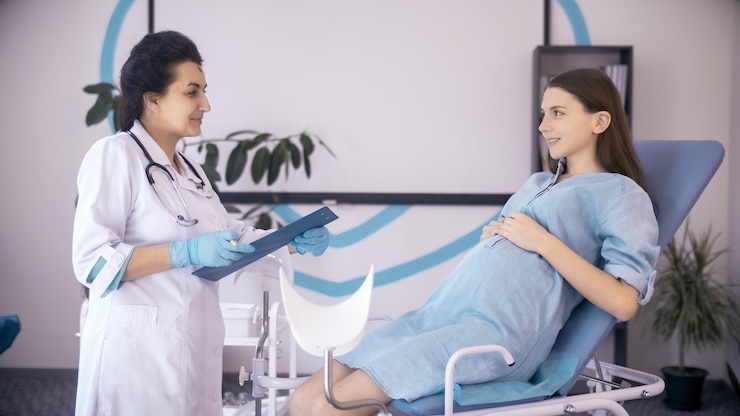Life moves fast. Between juggling work, family, and social commitments, health sometimes slips down the priority list. But here in Illinois, from the high-paced streets of Chicago to the peaceful suburbs of Naperville and the rural charm of Southern towns, women face specific health issues that can't be ignored.
Each phase of life brings new concerns—from puberty and pregnancy to menopause and beyond. Women across the state need easy, quick ways to stay on top of their well-being. That’s where fast care tips, local support, and the right knowledge can make all the difference.
Let’s dive into practical, real-world tips to help Illinois women take charge of their health, fast and smart.
Understanding Common Women’s Health Issues in Illinois
It helps to know what’s most common. When you understand the risks, you can act faster. These are some of the key health concerns many women in Illinois face:
1. Cardiovascular Health
Heart disease remains the leading cause of death among women in the U.S. According to the CDC, it kills about 1 in every 5 women. Illinois is no exception. Symptoms in women are often subtle—shortness of breath, jaw pain, nausea—not just chest pain.
What to do:
Get your blood pressure and cholesterol checked regularly.
Add heart-healthy foods like oats, berries, and leafy greens.
Try brisk walking for 30 minutes, five days a week.
2. Breast Health
Early detection saves lives. In Illinois, thousands of women are diagnosed with breast cancer each year. Thankfully, regular mammograms can catch issues early.
What to do:
Schedule annual mammograms if you're 40 or older, or earlier if there’s a family history.
Perform monthly self-exams at home.
Watch for lumps, skin changes, or unusual discharge.
3. Mental Health
Depression and anxiety hit women at nearly twice the rate of men. Add the pressures of caregiving, work-life balance, and hormone shifts—mental health deserves serious attention.
What to do:
Don’t brush off feelings of sadness or worry.
Consider therapy or support groups. The Illinois Department of Human Services lists many options.
Prioritize time for yourself—it's not selfish, it's essential.
4. Hormonal & Reproductive Health
Polycystic ovary syndrome (PCOS), endometriosis, and irregular cycles are more than annoyances. They can affect fertility, energy levels, and daily life.
What to do:
Track symptoms and periods. Use apps like Flo or Clue.
Ask for a hormonal panel during your next OB/GYN visit.
Consider diet changes and supplements after consulting a doctor.
5. Osteoporosis & Bone Strength
Bone loss creeps up after age 35. Illinois winters don’t help—less sun means less vitamin D.
What to do:
Eat calcium-rich foods like dairy, tofu, and leafy greens.
Add weight-bearing exercise like jogging or light strength training.
Get a bone density scan if you're over 50 or have risk factors.
When to Skip the ER and Visit Urgent Care Instead

Emergency rooms are for life-threatening conditions. But what about a UTI at 10 p.m.? Or sudden stomach cramps? This is where urgent care in illinois shines.
Urgent care centers, like those operated by OSF OnCall or Midwest Express Clinic, are open late and even on weekends. They handle:
Urinary tract infections
Cold and flu symptoms
Minor sprains and fractures
Allergic reactions
Sinus infections
Women’s health issues like pelvic pain or yeast infections
Benefits of urgent care:
Shorter wait times
Lower costs than ERs
No appointment necessary
If you’re in Springfield, Bloomington, or Chicago suburbs, chances are there’s one near you. Just don’t ignore serious symptoms. If you're experiencing sudden chest pain, difficulty breathing, or severe bleeding, call 911 or head to the ER.
Smart Self-Care That Works Even When You're Busy
Sometimes, the best care starts before things go wrong. And no, you don’t need hours of free time to practice solid self-care.
Quick Daily Self-Care Wins:
Drink More Water: It’s basic, but it works. Aim for 8 glasses a day.
Stretch or Walk: Even 10 minutes can boost energy and reduce stress.
Meal Prep: Cut veggies or prep oats the night before.
Sleep Hygiene: Try no screens an hour before bed.
Mind Breaks: Use breathing apps like Calm or Insight Timer during lunch.
Weekend Recharges:
Schedule wellness checks or dental appointments.
Try a yoga class at your local YMCA.
Visit nature—Starved Rock State Park, anyone?
Local Resources Every Illinois Woman Should Know About
Thankfully, Illinois isn’t short on options when it comes to healthcare support. You just have to know where to look.
Community Clinics & Public Health Services:
Planned Parenthood of Illinois: Offers services from birth control to cancer screenings.
Illinois Department of Public Health (IDPH): Runs vaccination drives, screenings, and education programs.
Erie Family Health Centers (Chicago area): Sliding scale care for uninsured and underinsured women.
Hospital-Based Women’s Health Programs:
Northwestern Medicine (Chicago): Offers advanced gynecological care.
Carle Health (Urbana): Women’s health services in both OB/GYN and urgent care settings.
Blessing Health System (Quincy): Comprehensive care including behavioral health.
Fast Reactions: When Speedy Gynecology Services Matter

Let’s talk about those “uh-oh” moments. Sudden pelvic pain, abnormal bleeding, or a missed period with a positive pregnancy test—these moments call for fast answers.
That’s where an emergency gynecologist comes in. In Illinois, several hospitals and specialty centers offer 24/7 OB/GYN services.
Where to Go:
Rush University Medical Center in Chicago
OSF HealthCare locations statewide
NorthShore University HealthSystem across northern Illinois
If you're in a smaller town, check for satellite clinics or virtual consultations. Telehealth options have expanded dramatically since 2020.
And for those with specific concerns—like complications from IUDs, infections, or postpartum symptoms—these specialists can provide timely, targeted care.
Special Focus: Women's Health Disparities in Illinois
Let’s be real—not everyone gets the same quality of care. Racial, economic, and geographic gaps still exist in Illinois.
For instance, Black women are nearly three times more likely to die from pregnancy-related causes. Rural areas face physician shortages. Language barriers can complicate diagnoses.
What’s Being Done?
Illinois Perinatal Quality Collaborative (ILPQC): Works on improving maternal outcomes.
Access Community Health Network: Provides multicultural, bilingual support in underserved neighborhoods.
Medicaid Expansion: Helps low-income women receive prenatal and postpartum care.
It's not perfect yet, but local efforts are pushing forward.
Local Voices: What Illinois Women Are Saying
“I didn’t think I needed urgent care until I had a weekend UTI. Found a clinic in Naperville—was in and out in 30 minutes.” — Sarah M., 31
“After moving to Champaign, I struggled to find women’s health services. The OSF clinic nearby saved me.” — Jennifer L., 44
“Northwestern’s OB emergency team was a lifesaver during my pregnancy complications.” — Melanie T., 37
Real stories, real impact.
Final Thoughts: Keep It Local, Keep It Quick
Fast care isn’t just about convenience. It’s about empowerment. For women in Illinois, having access to urgent care, emergency gynecology services, and preventive options can be life-changing.
So, whether you’re racing between errands in Springfield, managing your career in downtown Chicago, or raising kids in Rockford—remember this: your health deserves attention, now.
Be proactive. Know your local resources. Listen to your body. And when something feels off, don’t wait.
Because fast care isn’t just a solution—it’s a form of self-respect.
